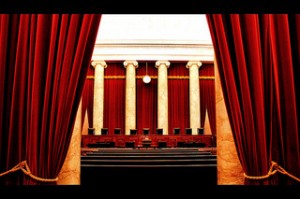SCOTUS Rules No Notice and Comment for Interpretive Rules No Matter What
Posted
17 Mar 2015 in Case Notes, Commentary, IMLA Briefs
In 2006 the Department of Labor (DOL) stated in an opinion letter that mortgage loan officers were eligible for overtime but then changed its mind in 2010 in an “Administrator’s Interpretation.”
In Perez v. Mortgage Bankers Association the Supreme Court held unanimously that federal agencies do not have to engage in notice-and-comment rulemaking pursuant to the Administrative Procedure Act (APA) before changing an interpretive rule, like the 2006 opinion letter in this case. The Court overturned a nearly 20 year-old precedent from the D.C. Circuit, Paralyzed Veterans of America v. D.C. Arena, which the State and Local Legal Center (SLLC) argued in an amicus brief that the Court should affirm. Paralyzed Veterans held that an agency must use APA notice-and-comment when significantly altering an interpretive rule that interprets a legislative rule.







